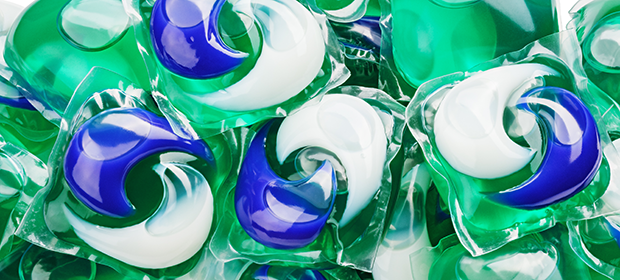Reducing our plastic usage and plastic waste is essential for the climate. Yes, plastic is a fascinating and useful material, which certainly has a place in our future, but it should be a considered future – limited to essential uses and carefully planned to ensure recyclability.

Our industry in particular is heavily reliant on plastic because we mostly produce liquids that are best transported in a water-tight, lightweight, flexible and mouldable material that’s cheap to produce – and plastic fits the bill perfectly! Add in the necessity for a complex range of natural and synthetic chemicals and it becomes crystal clear why we rely on plastics to the extent that we do.
However, a 2018 report from Ipsos identified that consumers believe that companies should be the most accountable for reducing plastic packaging, followed by the Government and consumers:

Specifically in the personal care and beauty industry, research suggests that 79% of British consumers believe these brands should put more effort into manufacturing products in an ethical and sustainable way. The scale of these figures represents the huge demand for industries to find alternative, more sustainable solutions to plastic packaging whenever possible.
A Familiar Solution
Products in soluble packaging have now been with us for many years, mainly in the detergent industry. We’re all familiar with laundry pods and auto dish wash pods, and we’re great at formulating for these applications.
These soluble pods have many advantages:
- They reduce over-dosing, meaning less waste
- They eliminate detergent contact with skin
- Formulations can be in a concentrated format
- Because they’re more compact, they reduce space and transportation costs (one pallet of powdered concentrated pod is equivalent to a 20 tonne truck of trigger spray cleaners!)
- They contribute to a huge reduction in single-use plastics!
Consumers are familiar with soluble packaging; they understand it and can see the advantages without explanation.
Polyvinyl Alcohol
The predominant material used for water soluble packs is Polyvinyl Alcohol, which is very water soluble and ‘readily biodegradable’, leaving no waste. The negative aspect of PVA is that it is, however, a petrochemical derived product. There are natural based films that are being produced and are refined, but these are not yet at the point where they can compete with PVA.
We expect the future of soluble packaging may well be a naturally derived alternative to PVA film, but for the moment it’s the most practical product and still represents a massive reduction in fossil fuel usage when compared to plastic packaging. In fact, when comparing ready-to-use trigger spray in 500ml plastic packaging with a concentrated soluble cleaner in PVA pods, the PVA pods save 20kg of plastic per cleaner in a professional setting per year! In addition, they also save money on warehousing and transportation costs, reducing the environmental impacts of both.
Soluble Packaging in Cosmetics
The main universal challenge with using soluble film is water content. Typically, we aim for a maximum of 5% water in a soluble packaging system. This creates a formulation challenge immediately, as the standard make up of cosmetic products and the concentration of the marketed raw materials does not lend itself to such low water percentages.
The next challenge is creating the expected sensory profile for the consumer. In cosmetics we’re typically formulating for either a leave-on or a rinse-off formulation. Typically leave-on formulations are thick and creamy, whereas rise-off are foamy. With most cosmetics, the end user also expects fragrance, colour and even particular skin feel depending on the product. So when we formulate for concentrated, low-water, dilutable products we must be careful to ensure our ingredients impart the right sensory profile so that the resulting product is familiar and understood by the user.
This challenge continues when we look at the concentration and efficacy of soluble packaging. With a 5% water-based formulation intended to be diluted by the end user, you must ensure the end format has the right level of fragrance, colour, actives and preservatives. The concentrated formulation needs to be fairly low viscosity for filling into the film, and so the formulation must thicken on dilution. Powder formulations must be free-flowing for ease of filling, have to be easily dispersible and in some applications may also have to thicken quickly with a minimal amount of shaking. This is challenging but is possible by calculating specific surfactant interaction. We must also ensure that it’s as effective as a ready-to-use product so that it’s competitive.
Of course, all of the above are difficult! Many fragrance and colour ingredients can affect the stability of the PVA film, and in concentrated form this can threaten the PVA structure so ingredients must be chosen carefully. Preservation is also a huge challenge, as the preservative level must be appropriate for both the concentrated form and the resulting diluted form. This may not only threaten the stability of the PVA film but could also result in stringent labelling requirements on packaging.
Similarly, stability testing must be done for both concentrate shelf-life and end use diluted product life. This concept is quite out of the ordinary and so testing raises some new questions for the industry too.
When There’s A Will, There’s A Way – And Our Technical Chemists Have Found It!
Our technical chemists have already solved many of these challenges several times over for personal care products. Our ‘For Goodness SHAKE!’ skin cream was awarded runner up position at the Laura Marshall Awards 2018. The demonstration of the concept product was a 5g soluble pod that dissolves upon shaking (30 seconds) with 50ml water in a standard cream cosmetic jar. The result is a fully formulated, stable emollient cream, ready for use immediately. This particular concept can be adapted for a range of skin cream applications as well as hair conditioner.

Working With Us
Our technical experts have many years’ experience working on the challenges of formulating for soluble film. We are currently working under several NDAs on soluble film formulations within the Personal Care and HI&I sectors, both retail and B2B.
As the European branch of Acello films, we are also a supplier of soluble films so we are back-integrated. Our technical team can provide both formulation and film technology expertise, which is a major advantage in developing finished products. We have in-house pod manufacturing capabilities in both Germany and Hungary, as well as 3rd party agreements in the UK. We work from our own on-site lab in the UK to develop formulations in-conjunction with Harke Pack Serve in Germany, so we have full control over the process and we work closely with some of the best chemical ingredient manufacturers in the world.
If you’d like to find out more about working with us or would like to discuss your formulating requirements, please don’t hesitate to contact one of our technical experts.







